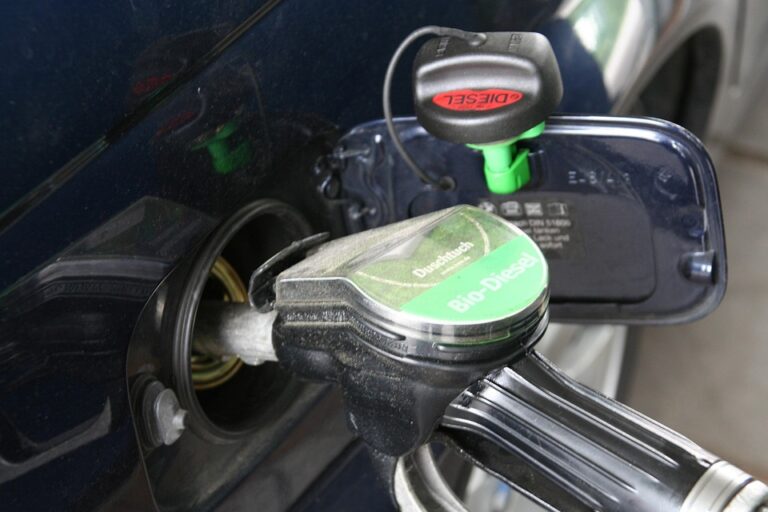Fuel Showdown: Analyzing the Pros and Cons of Diesel and Petrol
In the battle between diesel and petrol fuels, numerous factors come into play that influence vehicle performance, cost-effectiveness, and environmental impact. Consumers today are increasingly faced with the dilemma of choosing between these two dominant fuel types. In this comprehensive exploration, we will analyze the advantages and disadvantages of both diesel and petrol to help you make an informed decision for your automotive needs.
Understanding Diesel vs. Petrol
While both diesel and petrol are derived from crude oil, their chemical compositions and properties differ significantly. Diesel fuel is heavier and denser, consisting of longer hydrocarbon chains, whereas petrol is lighter and contains shorter chains. These differences lead to distinct advantages and drawbacks for each fuel type, influencing aspects such as engine performance, efficiency, emissions, and running costs.
The Advantages of Diesel Fuel
-
Fuel Efficiency
One of the standout benefits of diesel engines is their fuel efficiency. Diesel fuel has a higher energy content than petrol, which means that diesel engines can extract more energy from the same volume of fuel. This efficiency translates into better mileage, making diesel vehicles ideal for long-distance drivers and those who frequently tow loads.
-
Torque and Power
Diesel engines generally produce more torque than petrol engines, which results in better towing capabilities and superior performance in heavy-duty applications. This makes diesel vehicles particularly popular among truck and SUV owners who require robust performance for hauling and transporting goods.
- Longevity and Durability
Diesel engines are designed to withstand higher levels of stress and pressure than petrol engines. This durability often means that diesel vehicles can have a longer lifespan and may perform reliably even after hundreds of thousands of miles.
The Disadvantages of Diesel Fuel
-
Higher Initial Cost
While diesel engines tend to be more fuel-efficient, the initial purchase price for diesel vehicles is typically higher than that of their petrol counterparts. This upfront cost can be a significant consideration for budget-conscious consumers.
-
Maintenance and Repair Costs
Diesel engines require specialized maintenance, often leading to higher service costs. Parts like turbochargers, fuel injectors, and intercoolers can be more expensive to replace or repair compared to petrol engine components.
- Emissions Concerns
Although diesel engines emit less CO2 than petrol engines, they produce higher levels of nitrogen oxides (NOx) and particulate matter, which are harmful pollutants. This has led to stringent regulations that may affect diesel vehicle ownership in urban environments.
The Advantages of Petrol Fuel
-
Lower Initial Purchase Price
Petrol vehicles are generally less expensive to purchase compared to diesel vehicles. For buyers looking for a cost-effective option, this is a significant incentive.
-
Quieter Operation
Petrol engines are usually quieter and smoother than diesel engines. This reduced noise level ensures a more pleasant driving experience, particularly in urban settings.
- Lower Emissions of NOx
Petrol engines emit less NOx and particulate matter, making them a more environmentally friendly option in terms of urban air quality.
The Disadvantages of Petrol Fuel
-
Lower Fuel Efficiency
Petrol engines tend to be less fuel-efficient than diesel engines, especially for larger vehicles. This can lead to higher fuel costs over time, particularly for those who drive long distances or regularly tow heavy loads.
-
Performance Limitations
While petrol engines provide good acceleration, they often fall short in terms of torque compared to diesel engines. This makes them less suited for heavy-duty applications.
- Higher CO2 Emissions
Petrol engines produce more CO2 emissions than their diesel counterparts, which is a significant concern for environmentally conscious consumers aiming to reduce their carbon footprint.
Choosing the Right Fuel for You
Deciding between diesel and petrol should be based on your individual driving needs and preferences. Here are some tips to help guide your choice:
- For Long-Distance Drivers: If you regularly drive long distances or require a vehicle for towing, a diesel engine may be the more efficient and cost-effective option.
- For City Drivers: If you primarily drive in urban areas and prioritize quieter operation and lower upfront costs, petrol vehicles would likely serve you better.
- Budget Considerations: If your initial budget is more limited, consider a petrol vehicle. However, factor in the long-term fuel costs and potential for better mileage with diesel.
Conclusion
Both diesel and petrol fuels have distinct advantages and disadvantages that cater to different driving needs and preferences. By carefully assessing factors such as fuel efficiency, emissions, purchase costs, and intended use, you can make an informed decision that aligns with your automotive needs. Whether you lean towards the efficiency of diesel or the affordability of petrol, understanding the nuances of each fuel type will empower you to choose the right vehicle for your lifestyle.
For more insights into automotive trends and vehicle options, explore our other articles on buzzo.live, where we keep you updated on the latest in the automotive industry.


